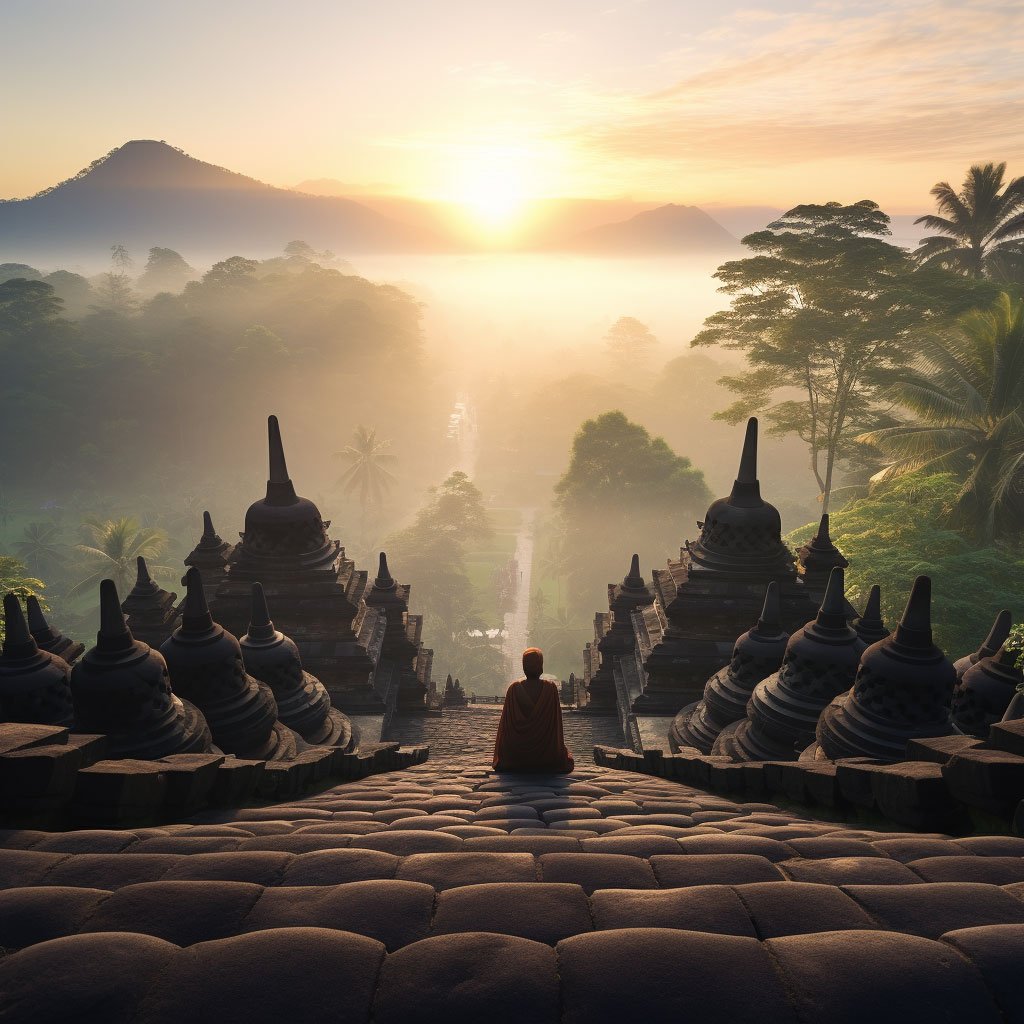
The cultural and religious landscape of Indonesia is as diverse as its archipelago, with a harmonious blend of Buddhism, Hinduism, and Islam shaping the country’s rich history and traditions. In this post, we delve into the spiritual heart of Indonesia, exploring majestic temples, sacred mosques, and taking part in profound religious ceremonies like Nyepi and Waisak.
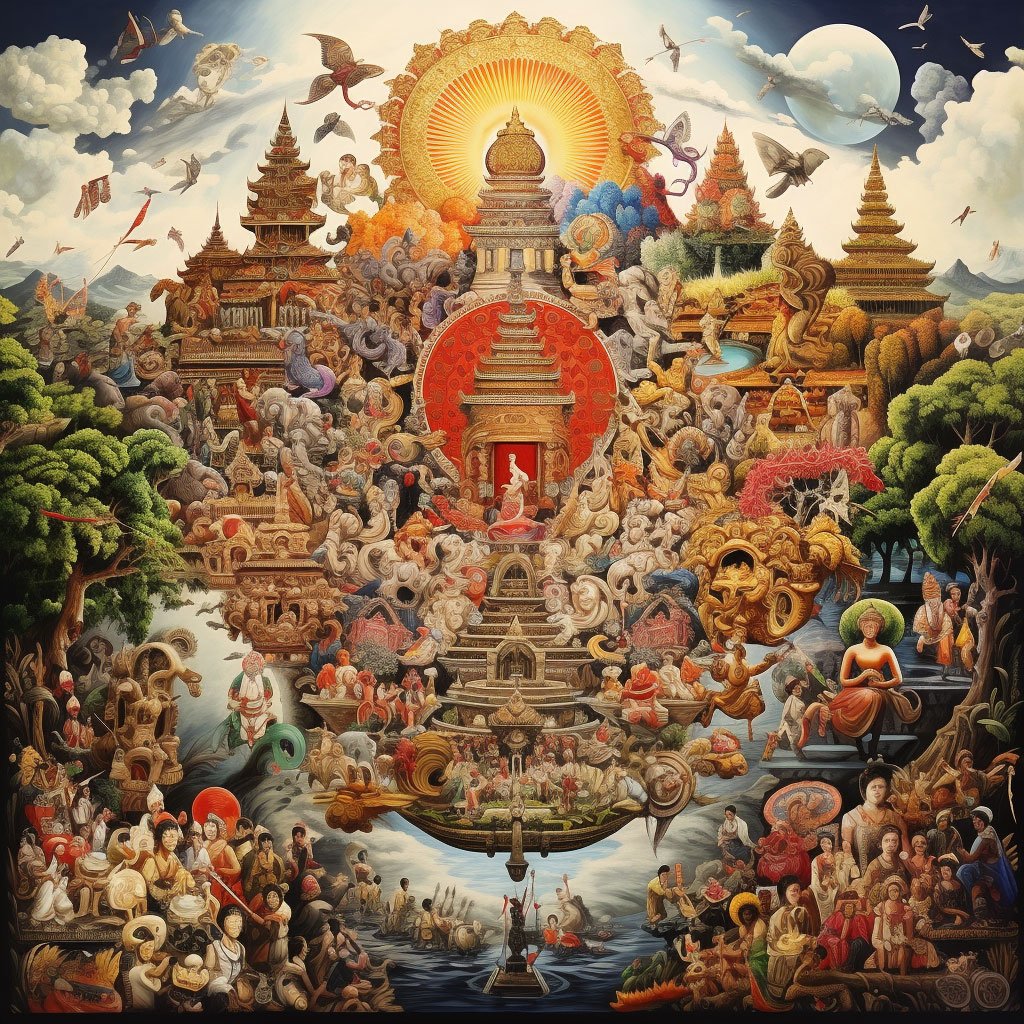
Buddhism: Enlightenment in Borobudur
Our spiritual journey begins in the heart of Java at Borobudur, the world’s largest Buddhist temple. This architectural marvel is not merely a temple, but a journey through the life of Buddha and the path to enlightenment, etched in the stone relief panels.
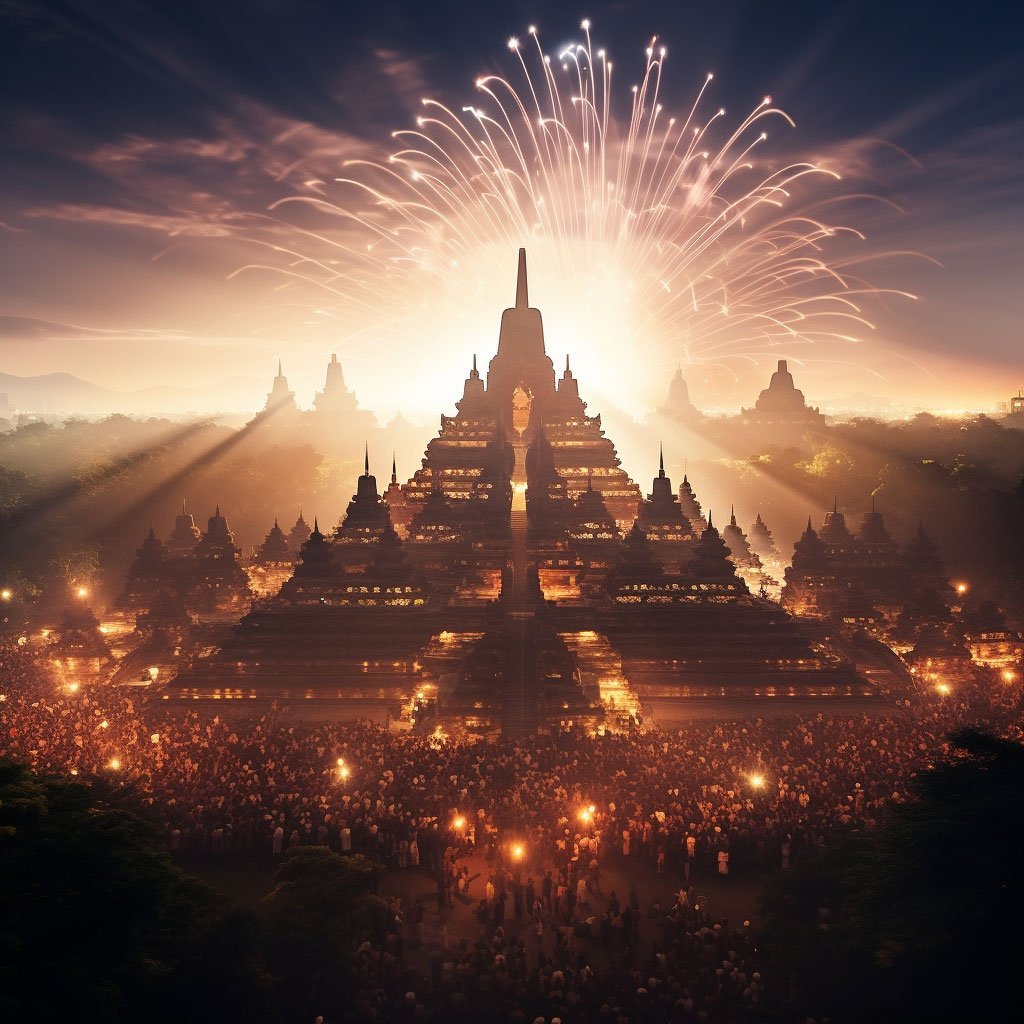
The experience of climbing up the temple’s nine stacked platforms is a spiritual quest in itself. The culmination at the top, with the stunning views of the surrounding landscape, symbolizes the attainment of Nirvana. The annual Waisak, or Vesak Day, is an exceptional time to visit, when the temple is beautifully illuminated, and pilgrims from around the world gather to commemorate Buddha’s birth, enlightenment, and death.
Hinduism: Divine Encounters in Bali
From Java, we move to the island of Bali, Indonesia’s Hindu heartland. The island is dotted with thousands of temples (Pura), each offering a unique spiritual experience. Pura Besakih, known as the Mother Temple of Bali, is the most sacred. Nestled on the slopes of Mount Agung, its tiered shrines are a serene sight, with their intricate stone carvings and towering meru (multi-tiered shrines).
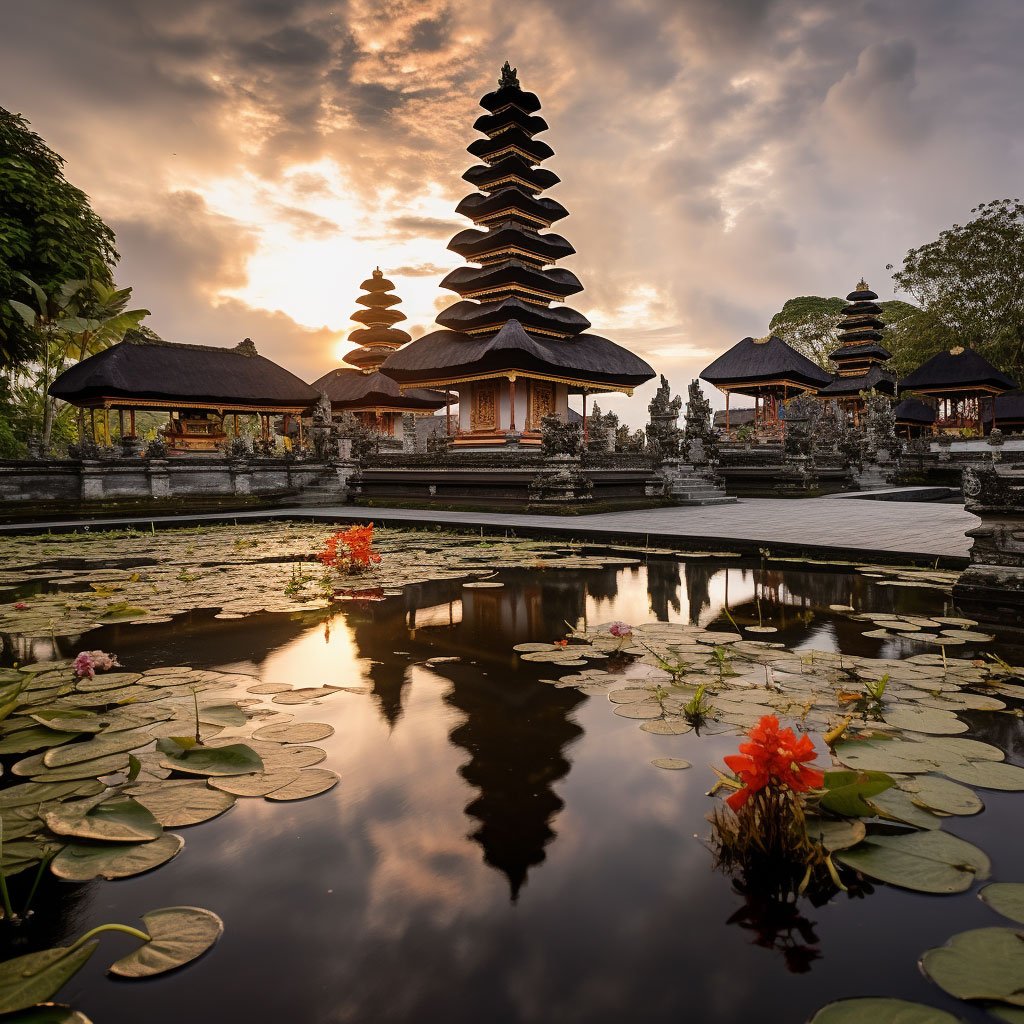
One of the most significant events in Bali is Nyepi, the Hindu New Year. This “Day of Silence” is an opportunity to reflect, meditate, and cleanse the spirit, following the noisy and colorful Ogoh-Ogoh parade meant to ward off evil spirits. The silence and serenity that descend upon the island during Nyepi are truly profound.
Islam: The Call of the Mosques
Indonesia, the world’s most populous Muslim-majority country, is home to numerous beautiful mosques. Istiqlal Mosque in Jakarta, the largest in Southeast Asia, is an imposing architectural wonder. With its minimalist design and grand scale, it’s a serene place for contemplation.
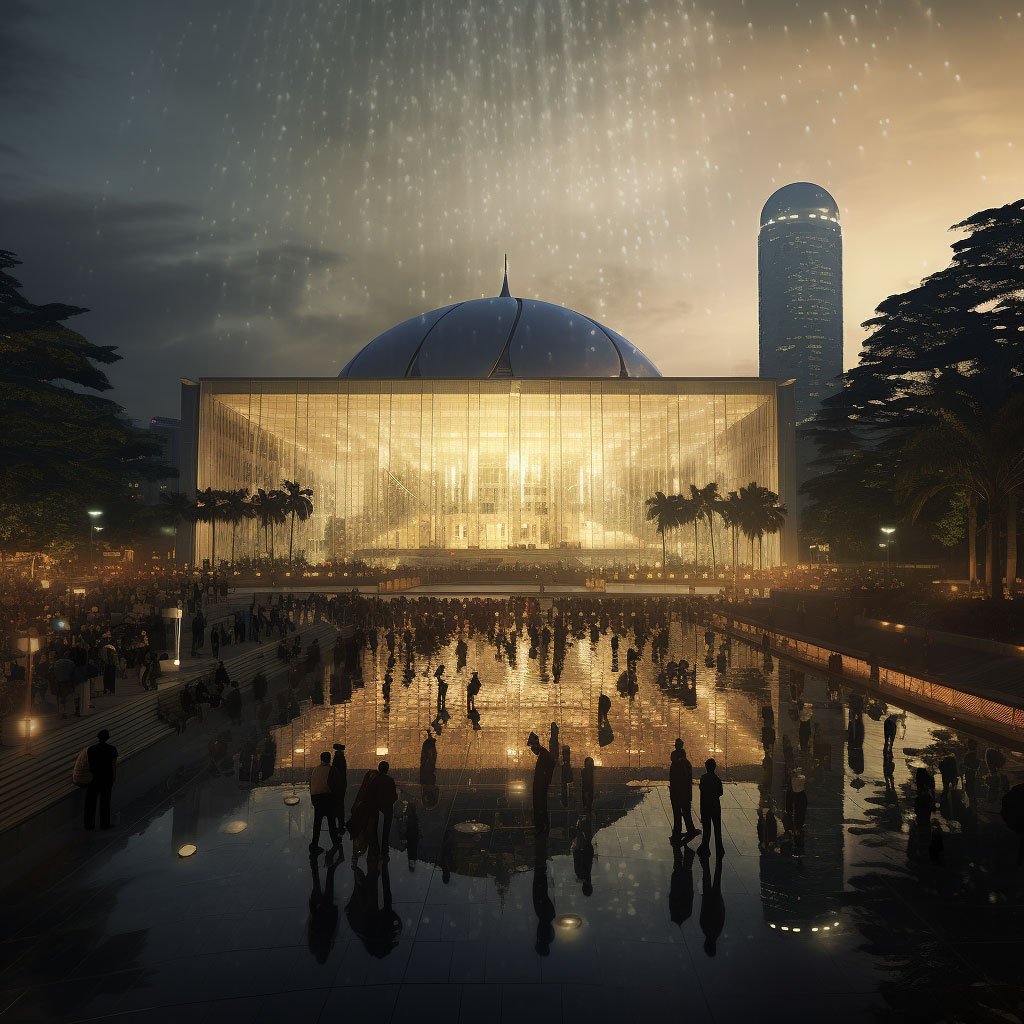
Visiting during Ramadan, the holy month of fasting, provides a unique perspective into the faith and devotion of Indonesia’s Muslim community. The breaking of the fast, or ‘buka puasa,’ is often a communal event, creating an atmosphere of fellowship and shared spirituality.
Conclusion: Unity in Diversity
Indonesia’s religious landscape is a testament to the country’s motto, “Bhinneka Tunggal Ika,” which translates to “Unity in Diversity.” Despite the different faiths and spiritual practices, there’s a shared respect and co-existence that weaves a harmonious cultural tapestry.
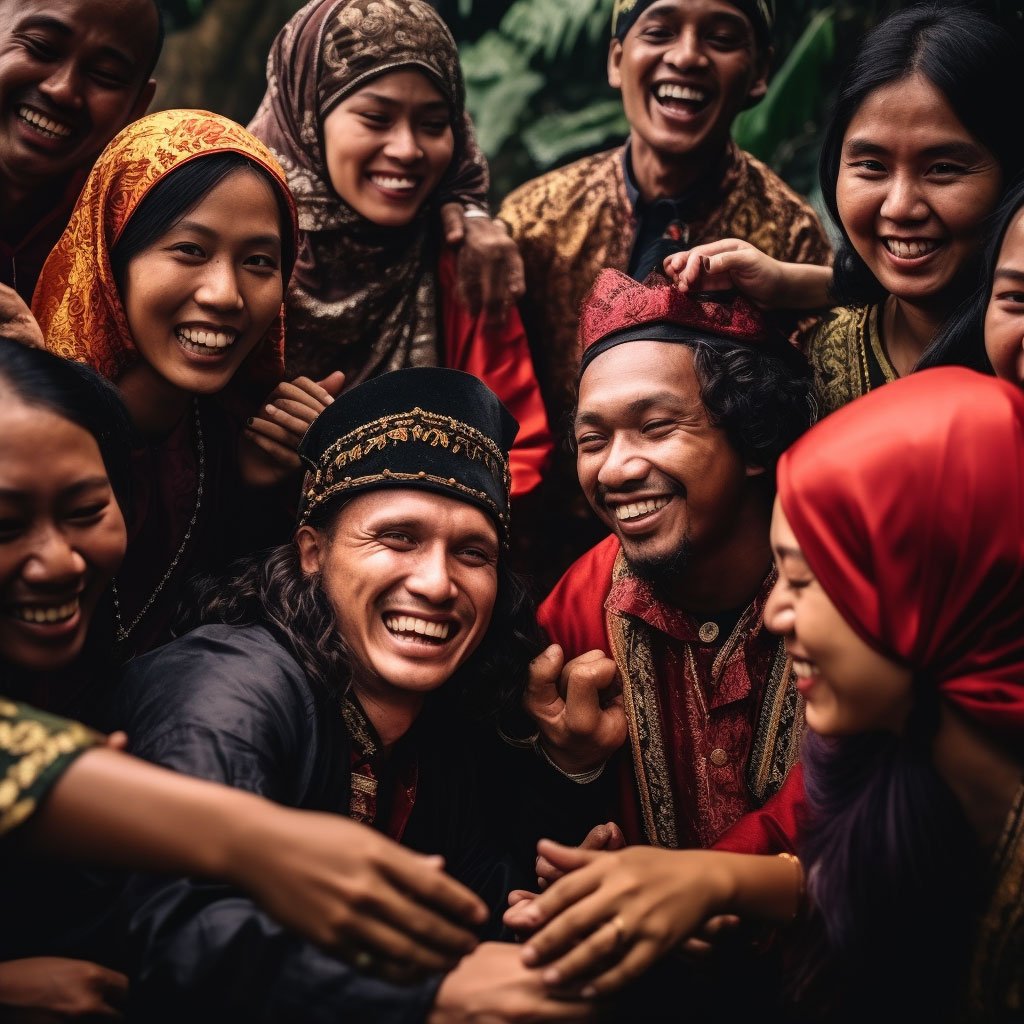
Whether it’s the profound peace at Borobudur during Waisak, the meditative silence of Bali during Nyepi, or the shared communal spirit during Ramadan, each experience offers unique insights into Indonesia’s rich spiritual heritage. These encounters remind us that, despite our differences, we are united in our shared quest for understanding, peace, and spiritual fulfillment.